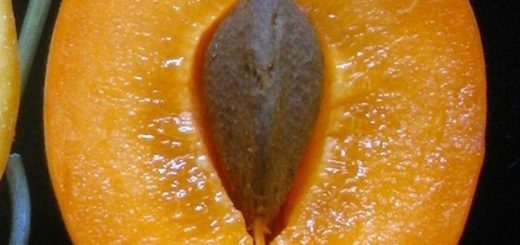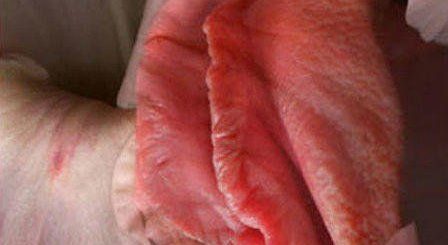Poisonous Chemicals in Personal Lubricants
A Guide to Bad Chemicals in Personal Lubes
So often, consumers are unaware of what ingredients and chemicals go into products and I think it is important to be educated about it. So I’ve put together this information guide on harmful chemicals that might be lurking in your personal lubricants and why you may want to ditch it.
I am always on the look-out for the perfect lubricant and have high standards when it comes to what products I will put inside of me. I always read labels on the foods I consume and I also read labels on my lubes. I prefer to use water-based lubes that are natural and organic (whenever possible) as well as paraben and chemical free. Here’s why.
Harmful Chemicals and Body Burden
Sixty percent of all chemicals we put on our skin ends up in the blood stream and lubricants may be absorbed through the mucus membranes of the vagina and anus even more so because there is no barrier for protection. Many personal lubricants and sensual products contain hazardous chemicals that create chemical body burden which is responsible for numerous health ailments. You can find out more about toxic chemicals in cosmetics and personal products in the Cosmetics Database and the Campaign for Safe Cosmetics.
- Parabens– Parabens (including Methylparabens, Ethylparaben and Propylparabens) are a group of chemicals used as preservatives in the cosmetics and are used for their bacteriocidal and fungicidal properties. Studies have found that parabens can be absorbed through the skin and can mimic the hormone estrogen, which has been linked to breast cancer. Parabens have also been known to decrease the sperm cell count in men, and promote allergic reactions on the skin such as burning and itching. Grapefruit seed extract (although natural, also called Citrus seed extract and Citrus grandis) is a paraben and should be avoided as it has known to be an eye irritant in low concentrations. Blueberries is also a natural paraben.
- Chlorhexidine Gluconate– Chlorhexidine Gluconate is an antibacterial. While that may sound great, this chemical doesn’t discern between good and bad, and it actually kills the GOOD bacterial in your vagina as well.
- DEA– Diethanolamine is a chemical wetting agent in cosmetics that helps keep a creamy consistency in lotions and creams. DEA can react with other ingredients in cosmetic formulations to form carcinogens that are readily absorbed through the skin and has been linked with stomach, esophagus, liver and bladder cancers.
- Glycerine– Glycerine (a close relation to glucose or sugar, also called Glycerine or Glycerol) is used as a sweetener and preservative in cosmetics and has been linked to yeast infections in women who are prone to them if more than 5% and more than that can damage mucus membranes.
- Menthol– Synthetic menthol as well as natural Peppermint Oil can be irritating and drying to a woman’s genitals and damages mucus membranes. Ingredients like cinnamon and capsaicin should likewise be avoided for the same reasons.
- Petrochemicals– Petrochemicals in oil-based products such as Mineral Oil (Liquidum Paraffinum), Petrolatum (petroleum jelly), Paraffin oil (lamp oil or premium Kerosine) or Paraffin wax, coat the skin halting its normal functions and are linked to cancer or other significant health problems. Petrochemicals have been restricted in cosmetic manufacturing.
- Propylene Glycol– Found in brake fluid, anti-freeze, paint solvents, and polyester compounds, Propylene Glycol is used as a solvent in many pharmaceuticals, and is used as a humectant food additive, emulsification agent, and moisturizer in cosmetics. The oral toxicity of propylene glycol is low, but large quantities can cause perceptible health damage in humans. Some people may obtain irritation from it including women with yeast infections and may cause intense burning and is an irritant to the eyes and skin.
- Polyethylene Glycol (PEG) – PEG is used as a thickener and is the basis of many skin creams, as cetomacrogol, and sexual lubricants, frequently combined with glycerin. It strips the skin’s natural moisture, is an eye and skin irritant, a possible carcinogen and can produce severe acidosis, central nervous system damage and congestion.
- L-Arginine– Is an amino acid and plays an important role in the healing of wounds, immune function, and the release of hormones. Like the drug sildenafil citrate (Viagra), L-arginine is thought to enhance the action of nitric oxide, which relaxes muscles surrounding blood vessels (vasodilation) supplying the penis. As a result, blood vessels in the penis dilate, increasing blood flow, which helps maintain an erection. The difference in how they work is that Viagra blocks an enzyme called PDE5 which destroys nitric oxide and L-arginine is used to make nitric oxide. People with genital herpes should not take L-arginine because it may aggravate their symptoms. –http://altmedicine.about.com/cs/herbsvitaminsad/a/Arginine.htm
- Aluminum Sulphate– Aluminum Sulphate (also known as Alum) is an inorganic salt used in “tightening” products such as shrink creams and antiperspirants, as well as food pickling and baking powder. This compound has an astringent property which causes the vaginal tissues to dehydrate and swell, and may be an irritant. Adverse effects of aluminum are currently known to be far more chronic (occurring over the long term) than acute (occurring in the short term) because it accumulates over time. Aluminum has been shown to be a neurotoxic compound if it is allowed to enter the bloodstream. Long-term exposure of patients may cause encephalopathy (defect of the brain) and/or bone mineralization disorders. Aluminum has also been suggested as a cause of Alzheimers disease, Lou Gehrig’s disease and other forms of senile dementia.
- Nonoxynol-9– Nonoxynol-9 is an abrasive detergent and was developed as a spermicide used in condoms, lubricants and sex toy cleaners. It was also shown to help kill the AIDs virus in clinical tests (in test tubes). However, it has been found to leave abrasions and lesions in the vaginal and to strip away the protective rectal lining in the anus, both of which could potentially increase chances of get AIDs, STDs and skin irritations.
- Benzocaine– Benzocaine is a local anesthetic commonly used as a topical pain reliever in anesthetic ointments such as oral gels for teething babies. Benzocaine is also used as a numbing agent in anal lubes like Anal-Eze, oral desensitizing creams like Good Head Oral Gel, a pleasure prolonging condoms like Trojan Extended Pleasure. Numbing agents are potentially dangerous when used anally or orally as you may not feel pain which could result in serious injury from vigorous thrusting that could tear or damage mucus membranes or cause bruising. Additionally, over-application of oral anesthetics can increase the risk of pulmonary aspiration by relaxing the gag-reflex and allowing regurgitated stomach contents, oral secretions (or sperm!) to enter the airway. Benzocaine also is a well-known cause of methemoglobinemia, a condition inwhich the red blood cells cannot bind oxygen, causing shortness of breath, cyanosis, mental status changes, headache, fatigue, exercise intolerance, dizziness and loss of consciousness. Because it may be used in topical creams with a concentration as much as 20%, it is not difficult to administer a dose sufficient to cause this problem. Severe methemoglobinemia can cause dysrhythmias, seizures, coma and death.
- Oils– Oil based lubes break down latex and damage condoms, dental dams, diaphragms, and cervical caps, thus reducing their effectiveness. Oils coat the vagina and anus which makes is hard for the vagina or anus to “flush” itself, leaving you open to bacterial or other infections. It can take the vagina 3-5 days to break down and get rid of oils, so oil-based lubes should not be used for vaginal or anal sex and are only recommended as male masturbatory aids. This goes for other types of oils like vegetable oils, massage oils, Vaseline, WD-40, and Crisco. These oils can cause serious irritation, clog pores, don’t allow the skin to breathe, are not condom safe and should never go anywhere near the vagina. The only oil I would recommend using in the vagina is coconut oil, because it aborbs into the skin and doesn’t create a barrier.
Buyer Beware: Claims of Natural and/or Organic
Now, you would think that any product that says it is natural or organic would be natural and organic, right? This is not always the case. Many cosmetic companies make claims to sell and market their products. Some products, such as Clairol Herbal Essences claimed to offer users an ‘organic experience,’ but the product is not organic or herbal and contains numerous petrochemicals that are known toxins. Like sex toys, personal care products are not regulated so companies are able to get away with making false claims. It is therefore important to read labels and do your research.
And, just because something is natural and organic, it doesn’t mean it is good for you or body-safe. Remember, many parabens are derived from natural sources like blueberries and grapefruit seed (see parabens above), but are known irritants to the skin. Poison Ivy is also both natural and organic but I wouldn’t recommend you rub it on your genitals (ouch!). So even if a product is made of natural ingredients, it may not be body-safe. Read the labels my friends! And keep your vagina, anus, penis and oral parts happy.
Resources & References:









